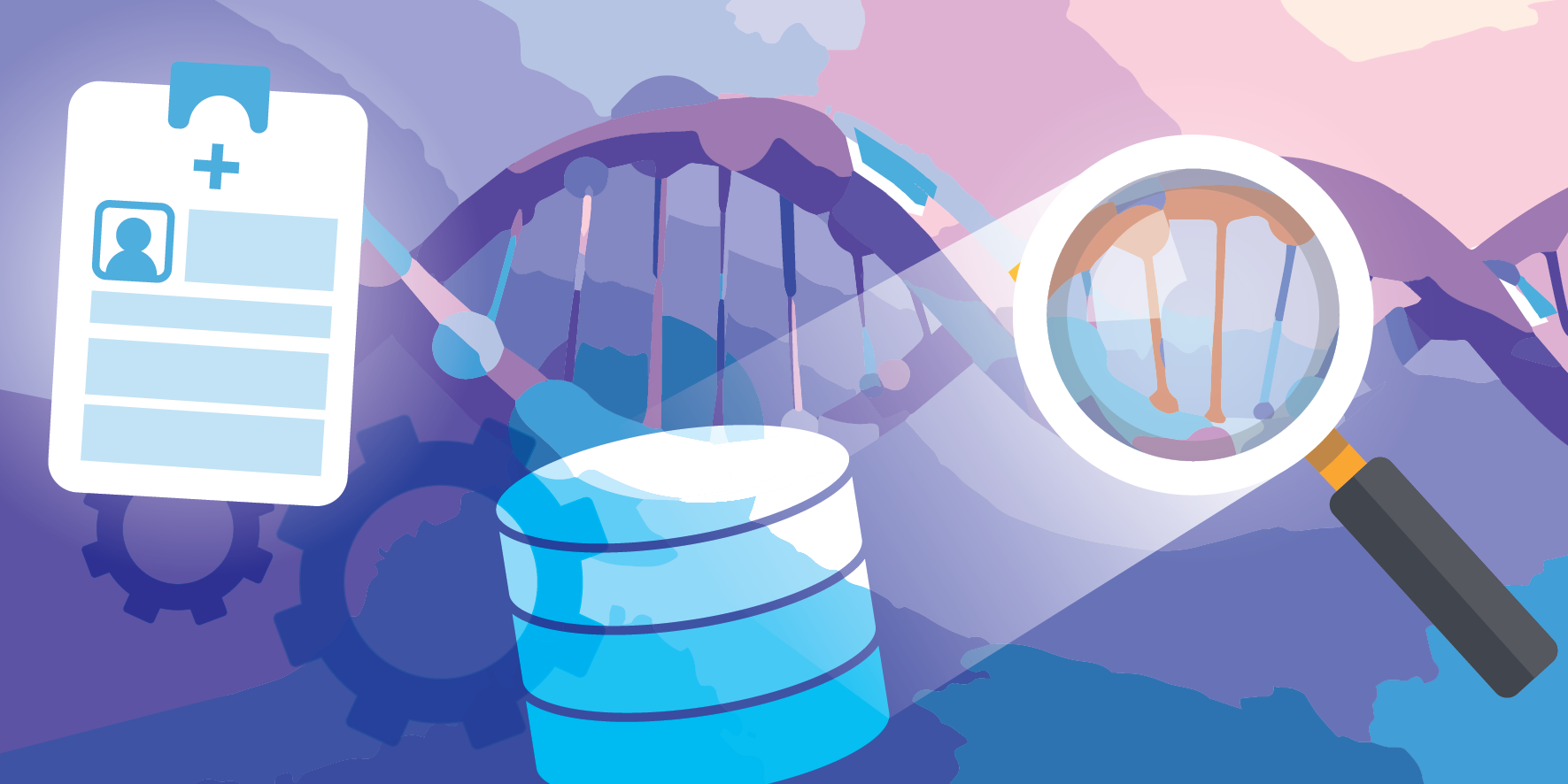About us
Learn how GA4GH helps expand responsible genomic data use to benefit human health.
Learn how GA4GH helps expand responsible genomic data use to benefit human health.
Our Strategic Road Map defines strategies, standards, and policy frameworks to support responsible global use of genomic and related health data.
Discover how a meeting of 50 leaders in genomics and medicine led to an alliance uniting more than 5,000 individuals and organisations to benefit human health.
GA4GH Inc. is a not-for-profit organisation that supports the global GA4GH community.
The GA4GH Council, consisting of the Executive Committee, Strategic Leadership Committee, and Product Steering Committee, guides our collaborative, globe-spanning alliance.
The Funders Forum brings together organisations that offer both financial support and strategic guidance.
The EDI Advisory Group responds to issues raised in the GA4GH community, finding equitable, inclusive ways to build products that benefit diverse groups.
Distributed across a number of Host Institutions, our staff team supports the mission and operations of GA4GH.
Curious who we are? Meet the people and organisations across six continents who make up GA4GH.
More than 500 organisations connected to genomics — in healthcare, research, patient advocacy, industry, and beyond — have signed onto the mission and vision of GA4GH as Organisational Members.
These core Organisational Members are genomic data initiatives that have committed resources to guide GA4GH work and pilot our products.
This subset of Organisational Members whose networks or infrastructure align with GA4GH priorities has made a long-term commitment to engaging with our community.
Local and national organisations assign experts to spend at least 30% of their time building GA4GH products.
Anyone working in genomics and related fields is invited to participate in our inclusive community by creating and using new products.
Wondering what GA4GH does? Learn how we find and overcome challenges to expanding responsible genomic data use for the benefit of human health.
Study Groups define needs. Participants survey the landscape of the genomics and health community and determine whether GA4GH can help.
Work Streams create products. Community members join together to develop technical standards, policy frameworks, and policy tools that overcome hurdles to international genomic data use.
GIF solves problems. Organisations in the forum pilot GA4GH products in real-world situations. Along the way, they troubleshoot products, suggest updates, and flag additional needs.
GIF Projects are community-led initiatives that put GA4GH products into practice in real-world scenarios.
The GIF AMA programme produces events and resources to address implementation questions and challenges.
NIF finds challenges and opportunities in genomics at a global scale. National programmes meet to share best practices, avoid incompatabilities, and help translate genomics into benefits for human health.
Communities of Interest find challenges and opportunities in areas such as rare disease, cancer, and infectious disease. Participants pinpoint real-world problems that would benefit from broad data use.
The Technical Alignment Subcommittee (TASC) supports harmonisation, interoperability, and technical alignment across GA4GH products.
Find out what’s happening with up to the minute meeting schedules for the GA4GH community.
See all our products — always free and open-source. Do you work on cloud genomics, data discovery, user access, data security or regulatory policy and ethics? Need to represent genomic, phenotypic, or clinical data? We’ve got a solution for you.
All GA4GH standards, frameworks, and tools follow the Product Development and Approval Process before being officially adopted.
Learn how other organisations have implemented GA4GH products to solve real-world problems.
Help us transform the future of genomic data use! See how GA4GH can benefit you — whether you’re using our products, writing our standards, subscribing to a newsletter, or more.
Join our community! Explore opportunities to participate in or lead GA4GH activities.
Help create new global standards and frameworks for responsible genomic data use.
Align your organisation with the GA4GH mission and vision.
Want to advance both your career and responsible genomic data sharing at the same time? See our open leadership opportunities.
Join our international team and help us advance genomic data use for the benefit of human health.
Discover current opportunities to engage with GA4GH. Share feedback on our products, apply for volunteer leadership roles, and contribute your expertise to shape the future of genomic data sharing.
Solve real problems by aligning your organisation with the world’s genomics standards. We offer software dvelopers both customisable and out-of-the-box solutions to help you get started.
Learn more about upcoming GA4GH events. See reports and recordings from our past events.
Speak directly to the global genomics and health community while supporting GA4GH strategy.
Be the first to hear about the latest GA4GH products, upcoming meetings, new initiatives, and more.
Questions? We would love to hear from you.
Read news, stories, and insights from the forefront of genomic and clinical data use.
Attend an upcoming GA4GH event, or view meeting reports from past events.
See new projects, updates, and calls for support from the Work Streams.
Read academic papers coauthored by GA4GH contributors.
Listen to our podcast OmicsXchange, featuring discussions from leaders in the world of genomics, health, and data sharing.
Check out our videos, then subscribe to our YouTube channel for more content.
View the latest GA4GH updates, Genomics and Health News, Implementation Notes, GDPR Briefs, and more.
Discover all things GA4GH: explore our news, events, videos, podcasts, announcements, publications, and newsletters.
6 Apr 2020
The GDPR requires entities using personal data for their own ends and performing specified services for third parties using personal data to keep records of their processing activities. The records must be in written or electronic form and be made available to supervisory authorities on request. Beyond minimum requirements of the GDPR, supervisory authorities propose further technological and organizational practices to ensure the accuracy and utility of records.

The GDPR requires entities using personal data for their own ends (controllers) and performing specified services for third parties using personal data (processors) to keep records relating to their processing activities. The records must be held in written or electronic form and be made available to supervisory authorities on request. Beyond the minimum requirements of the GDPR, supervisory authorities propose further technological and organizational practices to ensure the accuracy and utility of records kept.
Controllers must record their name and contact information, and that of their representative and data protection officer. The categories of personal data processed, the categories of data recipients, the purposes of such processing, and the categories of individuals to whom it relates must be specified. Transfers to third countries and international organizations must be documented, indicating the recipient country or organization. If possible, the controller must document the security measures used in general terms, and the anticipated time limits of data retention for each category of data.
Each processor must record the name and contact details of the controller(s) for which it is acting. For each controller, the processor must maintain the following records. The processor must document the categories of data processed. Transfers to third countries and international organizations must be documented, indicating the recipient country or organization. The processor must also document its own name and contact details, as well as the name of its own representative and data protection officer or those of the controller. If possible, the processor must document the anticipated security measures used.
For ‘exceptional’ transfers of personal data to non-EEA countries and international organizations that are not deemed ‘adequate’ and not carried out using another habitual GDPR transfer mechanism, the controller or processor must maintain detailed documentation of the safeguards used to protect the data.
Health sector entities should be vigilant of additional record-keeping requirements imposed by their local laws. Belgium and the United Kingdom, for example, have implemented additional record-keeping requirements in their national data protection legislation.
Hospitals and other organizations managing large quantities of health data have expressed concerns as to the capacity of their health informatics infrastructures to maintain such records. While entities with fewer than 250 employees may be exempt, where genomic and health-related data are processed, the record-keeping obligations remain the same. Generally, even small entities holding health data will have to respect the record-keeping requirements. Hospital administrators and health informatics communities have proposed integrating audit logs and audit trails to information technology infrastructures as potential mechanisms for automating or facilitating the creation of such records.
Beyond technical measures, the United Kingdom’s Information Commissioner’s Office (ICO) further recommends that organization heads interview staff members and conduct data audits across departments to gain further insight into data handling practices and the nature of the data held. Agreements, contracts, internal documents such as policies, breach reports, consent documentation, and data protection impact assessments are best retained along with the statutorily required reports and can assist in the compilation thereof. Using data flow maps can also be helpful in establishing records of processing activities. France’s supervisory authority, CNIL, recommends updating the records when the processing activities change. The CNIL and other national supervisory authorities have published record models for use by controllers and processors.
Relevant GDPR Articles and Recitals:
Further reading:
Alexander Bernier (B.C.L, LL.B) is an Articling Student at McGill University’s Centre of Genomics and Policy.
Funding acknowledgements: The author wishes to thank EUCANCan, euCanSHare, and the Cancer Genome Collaboratory for their financial support.
See all previous briefs.
Please note that GDPR Briefs neither constitute nor should be relied upon as legal advice. Briefs represent a consensus position among Forum Members regarding the current understanding of the GDPR and its implications for genomic and health-related research. As such, they are no substitute for legal advice from a licensed practitioner in your jurisdiction.
